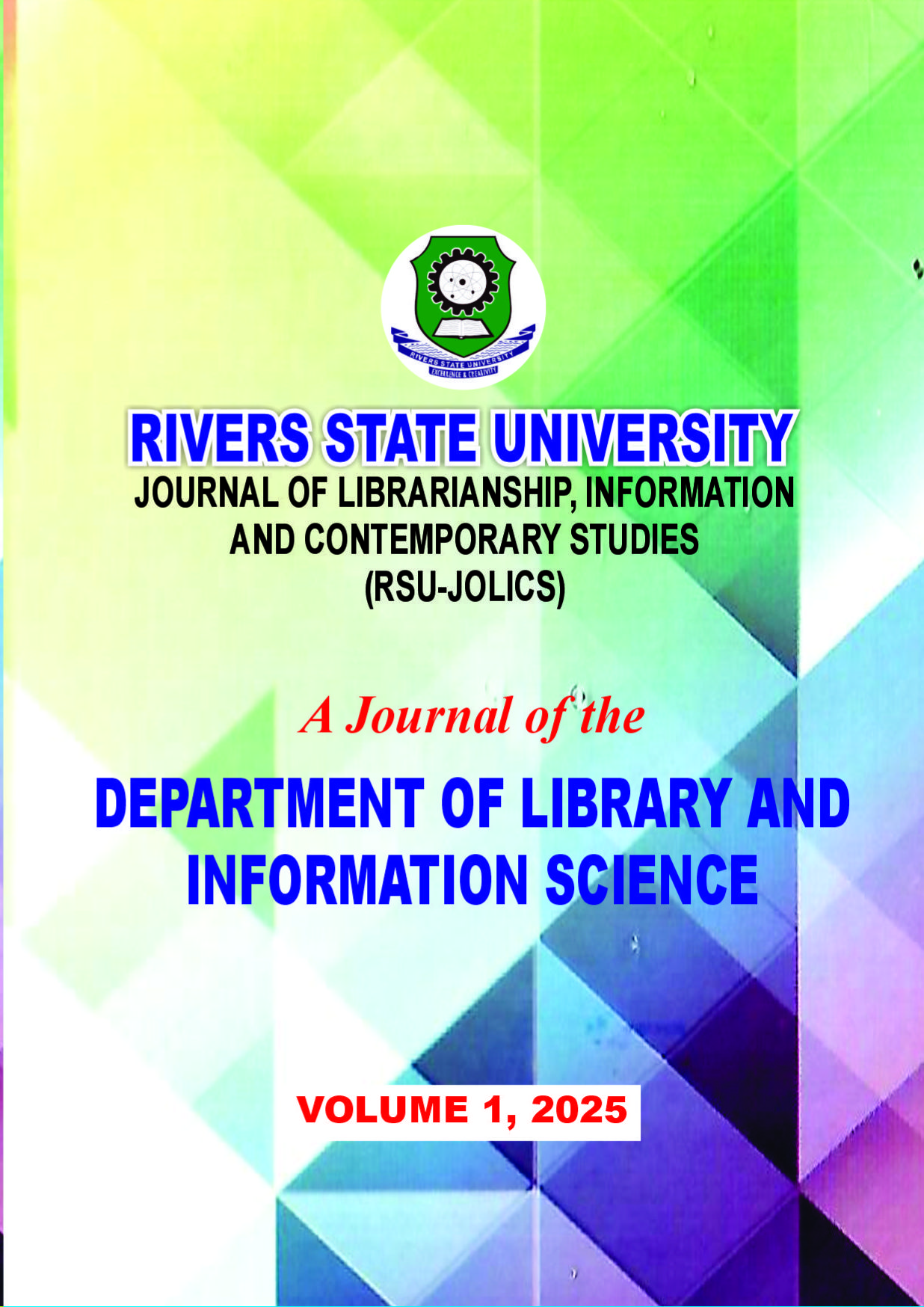Abstract
Abstract
The integration of artificial intelligence (AI) into library services is driving a paradigm shift in the field of Library and Information Science (LIS), heralding the era of smart librarianship. This study, titled “Smart Librarianship: Utilizing AI to Transform the Future of Library and Information Science,” investigates the transformative potential of AI applications in enhancing library operations and service delivery. Guided by four key objectives, the research adopts a descriptive design, collecting data from 120 participants—comprising LIS professionals and library users—from Lagos,Niger and Ondostates through questionnaires and in-depth interviews.Findings indicate that AI technologies such as machine learning and natural language processing (NLP) notably enhance functions including resource discovery, automated cataloging, and personalized user interactions, thereby contributing to a more efficient and responsive library environment. Nevertheless, significant challenges impede full AI integration, including skill shortages among LIS professionals, funding limitations, and ethical issues related to data privacy and algorithmic bias. The study concludes that while AI offers remarkable opportunities for innovation in library science, realizing its full benefits depends on targeted capacity building, infrastructural investments, and the formulation of robust ethical guidelines to support responsible AI adoption.In light of these findings, the study recommends sustained investment in AI technologies, continuous professional development programs tailored to evolving AI competencies, and the establishment of clear governance frameworks to ensure that AI enhances user experience while upholding fundamental library values.
Keywords: Smart Librarianship, Artificial Intelligence, Library and Information Science, Technology Integration, Library Services



 National Library of Nigeria
National Library of Nigeria.jpg) Association of Nigerian Authors
Association of Nigerian Authors Nigerian Library Association
Nigerian Library Association EagleScan
EagleScan Crossref
Crossref